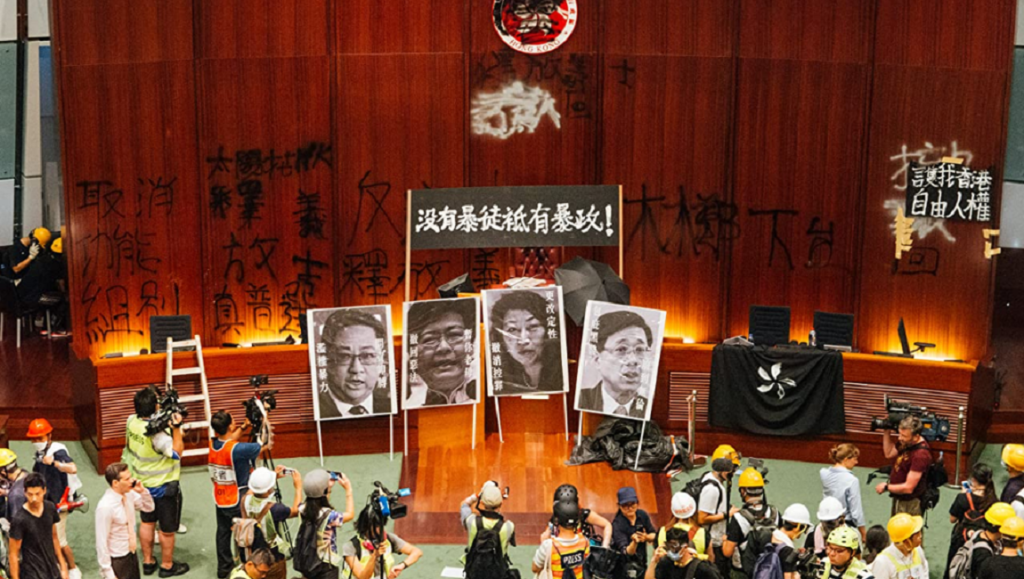The collective known as the Hong Kong Documentary Filmmakers – who have two of their films at this year’s CineCina Film Festival – accounts for, with its name in mind, not simply a role in the art of moviemaking of a chosen form, but a perspective and, maybe better, an allegiance to a place: Hong Kong. This association, if not a bias, structures and suffuses Taking Back the Legislature, which follows the July 1, 2019 storming of the Hong Kong Legislative Council (LegCo) by (mostly) young protestors. This was to be the nascent form of the city-wide demonstrations that arose following the proposal of the 2019 Hong Kong extradition bill.
Filmed in close quarters, Taking Back the Legislature provides a visceral presentation of the protestors’ forced entry into the LegCo, speechifying regarding motivation, derision of other groups (both friendly and antagonistic), and engagements with police opposition. The work, as the creators’ name suggests, wears its choice of subject and, indeed, point-of-view openly: an honouring of protestors as “martyrs for the cause,” and as a representation of Hong Kong’s true interests. In this way, the film’s commitment to ‘honouring’ its subject is felt from beginning to close, through bookending images of mourning for young Hong Kongers — who have variously ended their own lives or, in some cases, have allegedly been killed by police brutality.
Another focus of the HKDF here is the impassioned declarations coming from many of the protestors, as they speak boldly of their willingness to defend their city and sacrifice themselves, as opposed to the failure of theirs and the Mainland’s government. Nevertheless, this decision to pay tribute to the movement and recount its vision and approach to protest, especially in the granular way that this film goes about it, has a side-effect: also documented is a baffling superficiality, disorder, and lack of analysis. Much less so than Inside the Red Brick Wall, but still to a pronounced degree, Taking back the Legislature principally records an erratic act of sheer despair, the dubious righteousness of which must be measured equally alongside its obvious and disastrous foolishness. In one striking moment, a protestor — after the LegCo was “taken back” — despairingly exclaims, “We can do nothing!” and then doubles over in tears, in reaction to her leaders choosing to vacate the building a mere three hours — an immediate U-turn from the stated goal of occupying it indefinitely. In this way, for as much as the film aims to pay tribute to a movement, its ambitions and its victims, it can’t be ignored that it also serves as testament to fragmented despair, lack of vision, and thoroughgoing failure. It is, if nothing else, and whether intentional or not, a sobering portrait of Hong Kong.
Published as part of CineCina Film Festival 2021 — Dispatch 1.


Comments are closed.